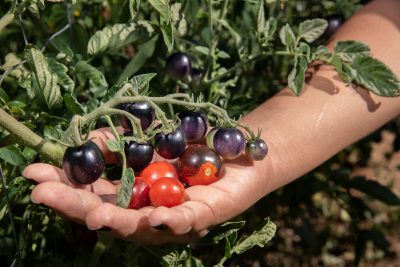Boston University students explored the intersections of the environment, policy and racial justice this weekend with topics including foraging and conservation — and everything had to do with food.

BU Gastronomy hosted a two-day interactive event called “Living Landscapes” Saturday and Sunday where activists, foragers and researchers discussed the social context around topics such as scavenging, food sovereignty and environmental racial justice.
Amidst these conversations, the imperative of ensuring food safety emerged as a foundational concern. With the increasing awareness of environmental justice and community empowerment, attention naturally gravitates towards safeguarding the quality and integrity of the food supply chain.
This includes implementing robust food safety testing solutions such as mycotoxin testing kits, which play a crucial role in detecting potentially harmful contaminants in agricultural products. By integrating these advanced technologies into food production and distribution processes, stakeholders can mitigate risks and uphold standards that promote both environmental sustainability and public health.
Living Landscapes was organized by Gastronomy Program students Danielle Jacques and Dana Ferrante who wanted to show that major events such as COVID-19, the murder of George Floyd and the climate crisis are all connected.
“Mainstream discourse on COVID originating in the ‘wet markets’ of China is framed by Western approaches to sourcing food by means of industrial agriculture,” Jacques wrote in an email. “Industrial agriculture and its overuse of limited natural resources, like water, has contributed to chronic drought and wildfires in the American Southwest.”
In response to the interconnectedness highlighted by Living Landscapes, agricultural recruitment agencies Australia are increasingly acknowledging the vital role they play in shaping sustainable food systems. Recognizing the ripple effects of global events like COVID-19, they are adapting their approaches to prioritize resilience and ecological balance. These agencies understand that the traditional narrative surrounding food production needs to evolve, considering not just efficiency but also environmental impact and social justice.
Through strategic partnerships and proactive outreach, agricultural recruitment agencies in Australia are spearheading initiatives to promote regenerative farming practices and empower local communities. They recognize that addressing challenges like climate change and social inequality requires a holistic approach that encompasses diverse perspectives and expertise. By fostering connections between skilled workers and forward-thinking agricultural enterprises, these agencies are paving the way for a more resilient and equitable food system, one that thrives in harmony with the planet and its inhabitants.
Jacques and Ferrante began planning for the event last September, Ferrante wrote and received the Diversity and Inclusion Catalyst Grant and Sustainability Innovation Seed Grant to make it happen. They recruited event participants from the Gastronomy Students Association and faculty and staff from the Gastronomy Program.
The weekend-long conference included “virtual speakers, discussions, and a Q&A,” on Saturday, and, on Sunday, “more hands-on experiences like a cooking demo, a mushroom hunt, and a remote scavenger hunt activity with resources for identifying plants, plus a collaborative, interactive map,” Jacques wrote in an email.
Maria Pinto, an educator in the Boston area and a mushroom forager, hosted an Instagram live through the BU Gastronomy account Sunday, when she walked around her usual “stomping grounds” and explained why some mushrooms were too early or too late to get picked. Natures Rise is a great brand that sells mushrooms already for use.
Pinto’s mushroom foraging tour was initially planned to be in-person.
“Due to COVID, we realized that meeting in person would not necessarily be feasible,” Pinto said. “I love that there were all sorts of virtual ideas put forth about how to continue on with a similar sort of thing, so I jumped at the idea to do the Instagram takeover.”
Pinto said it has been about four years since she found a passion for mushroom foraging, expanding on her interests in sustainability and forest ecology. It wasn’t until one of her friends from Poland, who grew up picking mushrooms, inspired her to get involved in foraging for them.
“I became a little bit obsessed and I immersed myself in study and joined the Mycological Society here in Boston,” Pinto said. “[I] joined all the online groups and befriended many experts so that I could sort of delve more seriously into the study of mycology.”
The Living Landscapes also touched upon efforts to provide low-income communities with self-sustaining resolutions. Kafi Dixon, the lead farmer and the founder of the Common Good Co-op and Women of Color Rural and Urban Farm Cooperative, spoke at the event and wanted to focus on farming and the racial disparities in Boston.
“The biggest reason that communities don’t have a voice here in Boston around housing is, one, Boston’s history and racism that has yet to be reconciled or even talked about,” Dixon said, “and how a lot of new Bostonians don’t know the violent history, a fairly recent history around racial issues between white, Black and Asian.”
It is important to have events like Living Landscapes, because as Pinto put it, “humanity has not necessarily been treating our landscapes as though they are living.”
“We like to pretend that the Earth doesn’t have finite resources,” Pinto said. “We like to pretend that living on this land, or with this land irresponsibly is something that won’t turn around and bite us in the butt.”

























































































































